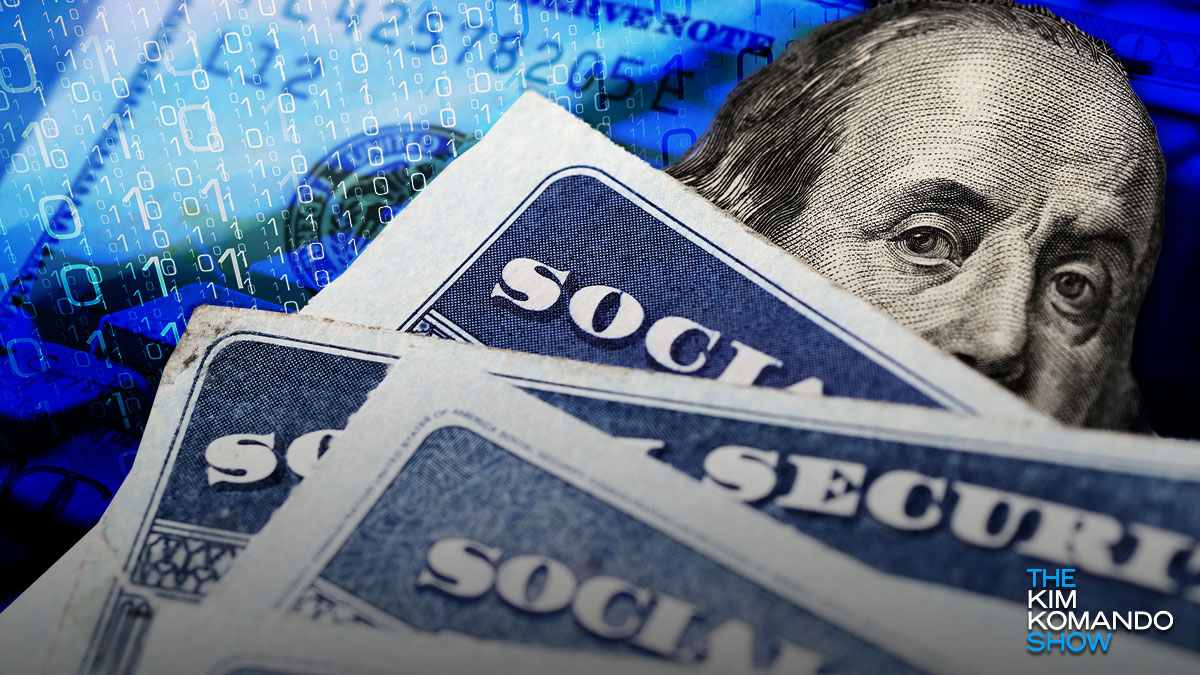🛡️ 1 billion malware programs, 1 easy fix: Antivirus software scans your system for viruses, ransomware and other threats and removes them before they cause damage. Protect five devices for only $19 — cheaper than your last impulse DoorDash.
Tax scams 2025: Tricks, tactics and how to stay safe

The phone rings, and it’s an agent from your local IRS office with bad news. Someone filed in your name. But don’t worry, they can help you sort it out in just a few minutes. Now, what’s your Social Security number?
You read my newsletters, so hopefully you read that and thought, “Nope, it’s a scam.” It sure is, and it’s one of the tactics savvy criminals use to fool people into handing over incredibly valuable information.
It happens every year, but advances in tech — like AI voice changers that make someone across the world sound like a guy from your hometown — make these tricks harder and harder to spot. Here’s what you need to know right now.
I find the IRS taxing
Falling for a tax scam could cost you more than just your refund. Here are the most common ways they start:
- Fake communications: It could be an email, text or even social media message. The IRS doesn’t initiate contact about a bill or tax refund that way, and they’ll never ask you to send financial information via text or email.
- Fake “helpers”: If a friendly stranger offers to help you set up an online account at IRS.gov or get your refund faster, they’re scamming you.
- Fake tax preparers: If a tax preparer is unwilling to sign your tax return, they’re breaking the law. Check your preparer’s credentials here.
- Fake tax advice: If someone encourages you to file false tax credits, claim false wages or otherwise lie on your return, it’s not a “smart” hack. That’s illegal. This junk is all over social media.
- Fake charities: You donate to a charity you think is real, but your money and details go to a scammer. And your charitable tax deduction? It won’t count.
Protect yourself
OK, now that you know how they weasel in, let’s talk about how you can keep yourself safe.
Get an Identity Protection PIN: An IP PIN is a six-digit number that replaces your SSN or ITIN on your tax return. Getting one is an extra step every year, but it’s so worth it. It means no one can file a fraudulent return on your behalf, even if they have your SSN. Victims of identity theft are automatically enrolled in this program. Everyone else can apply online.
Use Direct File if you can: Cut out the middleman and file your taxes directly with Uncle Sam. Check here to see if you qualify. It’s available in 25 states.
File using vetted tax software: For Pete’s sake, please don’t Google “cheapest way to file taxes.” Use software that’s tried, tested and approved by the IRS. The top dogs are TurboTax (30% off) and H&R Block (35% off). Get the version that suits your needs, and don’t forget about your state return!
Quick hits
We may earn a commission from purchases, but our recommendations are always objective.
Safe Wi-Fi anywhere: Using public Wi-Fi is risky no matter where you go. It doesn’t make a difference if you stay at a five-star luxury hotel, have lunch at your hometown diner or you’re at the airport. The easy way to protect yourself? Turn on a VPN.
Data brokers are cashing in, but you can stop them

Everyone wants your Social Security number. Some requests are legit, like when you’re starting a new job, applying for a loan or verifying your identity.
But countless others, from data brokers to scammers, are after your nine-digit code, too. In fact, an estimated 2,400 data brokers operate in the U.S., collecting and selling billions of personal records, often without your knowledge. Some even offer “credit header data,” which includes Social Security numbers, for as little as $5 per record.
💍 Diamonds aren’t forever: What if a mystery red box with a diamond ring arrived in your mail? Ask Tiffany Grove. She got one from the “Global Gemological Research Academy,” did some digging and realized it was a scam. It came with a QR code for a “warranty” that leads to a phishing site. Apparently, the only gem they’re offering is emotional damage. Don’t scan it, just report it.
Do you bank on your phone? What about checking email and shopping? If you said “yes” to any of those, you’re a target. A keylogger captures everything you type, including your account numbers and passwords. Encrypt your keystrokes with EndpointLock. Hit this link for 10% off.
💔 When will people wake up? A 63-year-old woman was ready to leave her husband for a scammer pretending to be Enrique Iglesias. Over two years, he talked her out of thousands of dollars. When her cash dried up, he told her to steal it. Hubby traced the messages to Nigeria and begged her to stop. She even went on TV and still swears it’s Iglesias. So sad.
🚨 Hackers can steal your home without you even knowing: With just a forged signature, cybercriminals can take out loans in your name, drain your equity and leave you with the mess. Home Title Lock monitors your title 24/7 and alerts you to any tampering because your biggest investment deserves the best protection. Click here to get a free home title history report, using code KIM250.
💸 IRS scam link: It never stops. This time, if you Google how to get a business tax ID, the top results look official, but they’re not (paywall link). They’re ads from companies that charge you over $300 for something the IRS does for free. The real IRS site ends in .gov. Anything else? Fake.
⚠️ Your browser is a big honkin’ target: Reading this on Chrome? Hackers are sending phishing links via email that infect your system with malware as soon as you click. A fix is coming soon, so restart your browser when you see the update icon near the URL bar. Sigh, just one more reason you need solid antivirus protection.
There are over 1 billion malware programs: Antivirus software scans your system for viruses, ransomware and other threats and removes them before they cause damage. Protect five devices for only $19.
🫨 Gone phishing: If you use Gmail or Outlook, watch out for deceptive emails asking for sensitive info or trying to trick you into clicking a malicious link that takes over your computer. Make a mistake and the hackers will hold your PC or data hostage until you pay a ransom. This one’s spreading, so watch out!
Don’t use a free VPN: Many log your keystrokes, track your activity and even sell your data, making you less secure, not more. Stick with a trusted, no-log VPN instead. Get four months free from the VPN I trust.
Don’t fall for this! Fake CAPTCHA tests are popping up. They’ll ask you to do three things: Press Windows Key + R (opens the Run command box), then Ctrl + V (pastes “I am not a robot – reCAPTCHA Verification ID: XXXX”) and hit Enter. You’ve just executed a hidden prompt that downloads malware onto your computer. Snap.
Your boss sent you a Word doc again … And you don’t have the program installed. Not all is lost. Get a basic, free version of the Office app on the web, as long as you have a Microsoft account (yes, this is free, too).
Do you bank on your phone? What about checking email and shopping? If you said “yes” to any of those, you’re a target. A keylogger captures everything you type, including your account numbers and passwords. Encrypt your keystrokes with EndpointLock. Hit this link for 10% off.
$539
Lost to the average deepfake call. Criminals use AI to impersonate Medicare workers, politicians, Amazon reps, insurance agents, you name it. When in doubt, hang up.
Safe Wi-Fi anywhere: Using public Wi-Fi is risky no matter where you go. It doesn’t make a difference if you stay at a five-star luxury hotel, have lunch at your hometown diner or you’re at the airport. The easy way to protect yourself? Turn on a VPN.
“Hey, Kim, what was the name of that …” I get so many questions about our security sponsors. You need five security products. I put together a handy resource where you can find what they do, links and deals I’ve negotiated just for you.

